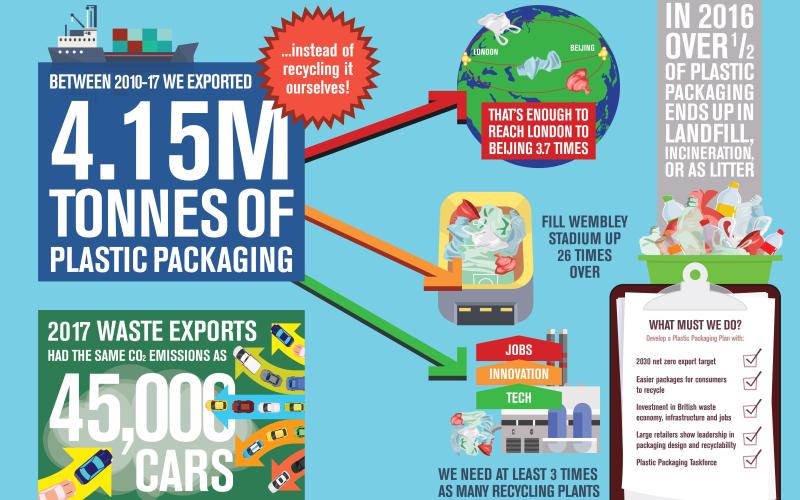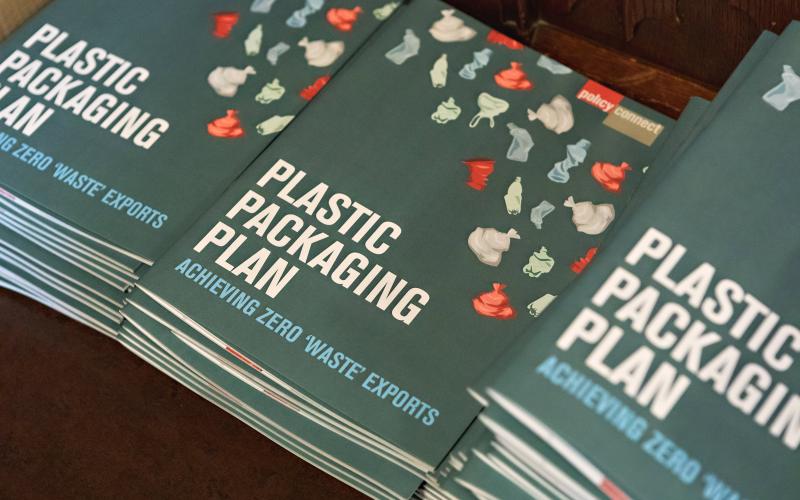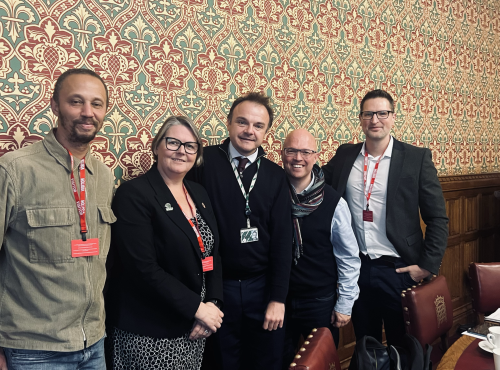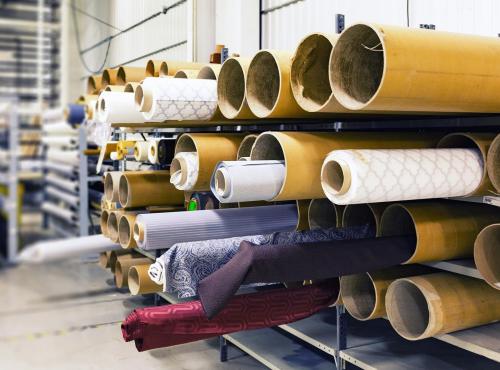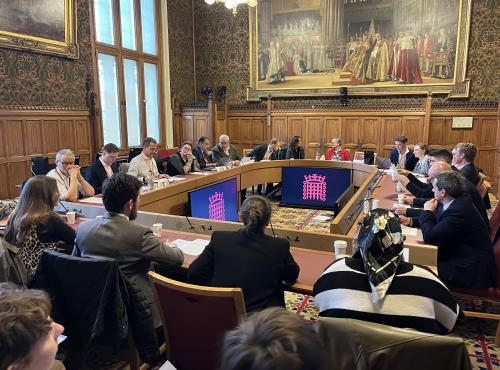MPs call for bold national Plastic Packaging Plan to help consumers protect our oceans and create green UK jobs
New report – Plastics Packaging Plan: Achieving Zero ‘Waste’ Exports – is backed by 12 cross-party politicians and says the UK must urgently take back control of its share of the global plastics problem, highlighted in Sir David Attenborough’s hard-hitting Blue Planet TV series. It calls for new UK policies so UK plastic becomes a circular industrial resource, rather than exportable waste or environmental pollution.
If the UK wants to be a global environmental leader, it can no longer afford to sweep its plastic rubbish problem under other countries’ carpets, says a new report today, calling for a bold national policy framework to reduce ocean plastic overseas and boost domestic infrastructure investment, innovation and green jobs.
The report from UK think-tank Policy Connect says an ambitious new roadmap is needed to deliver a coherent circular and sustainable plastics policy that consumers feel proud of and protects marine life from UK plastic.
Jonathan Shaw, chief executive of Policy Connect, said: “Britain’s used plastic export habit is costing our economy and the planet. We can no longer sweep our plastic rubbish problem under other countries’ carpets. British consumers want to recycle more but our lack of UK reprocessing plants and circular policies are letting them down. We need a bold national plastics plan that we can all be proud of to protect the marine environment, to kick-start infrastructure investment and jobs, and to boost UK demand for recycled plastics.”
‘Dirty Secret’: between 2010-17, the UK exported 4.15 million tonnes of used plastic packaging
No longer ‘the dirty man of Europe’, the UK enjoys one of most proactive recycling regimes in the world which produces an estimated 3.5million tonnes of recyclable plastic packaging waste every year. However, UK local authorities have developed diverse approaches to recycling, which can often be confusing for consumers. Furthermore, because of the lack of investment in recycling and re-processing infrastructure, waste-to-energy facilities and policy incentives, the UK currently exports two thirds of this to other countries – 4.15m metric tonnes over the past seven years; enough to fill Wembley stadiums 26 times, roughly 4.3 stadiums per year.
Exporting our waste is bad for consumers, bad for the climate, bad for marine life, bad for Britain
Exporting our waste not only increases greenhouse gas emissions from shipping but increases the volumes of UK plastic ending up in landfill or in oceans on the other side of the world. A ‘zero export’ policy for used plastic packaging would save the equivalent CO2 emissions from shipping as taking 45,000 cars off the road every year. China’s recent import ban on plastic waste has driven UK waste exports to countries like Malaysia (17%), Turkey (16%), Poland (12%) and Indonesia (11%)[1]. Many countries currently reprocessing our rubbish have lower worker welfare standards, weaker health and safety regulations, and weaker environmental protection than the UK.
A ‘Plastic Packaging Plan’ for Britain to be proud of
The report findings stop short of calling for a ban on exports but says the UK would benefit politically, economically, socially and environmentally from prioritising domestic processing over export. UK consumers want to do more for the environment so government must make it easier for local authorities to help them recycle more. The UK has the specialist innovation and skills to lead the global waste management sector.
Welcoming the new report, The Rt Hon Lord Deben, Chair of the Committee on Climate Change, says, “Britain is a proud, responsible, ‘can do’ nation which looks to the future. We welcome the government’s forthcoming consultation on its ambitious Resources and Waste Strategy. The right policy roadmap can turn our plastic waste problem into an economic opportunity for the UK to lead the world in waste-processing, recycled plastic, and waste-to-energy innovation and jobs.”
Mary Creagh MP, Chair of the Environmental Audit Committee says, “Exporting two thirds of the UK’s plastic waste overseas is bad for jobs, business and our environment. I welcome the call for the UK to commit to a bold target of zero exports of plastic packaging by 2030. Achieving this will require home-grown solutions such as implementing a Deposit Return Scheme by 2022 and applying a coffee cup levy as my Committee recommended. We can and must transition from exporting our plastic waste problem to growing our own solutions.”
Jacob Ainscough, author of the new Policy Connect report said: “Our oceans and their marine life are in crisis. Bolder UK regulations on packaging waste must deliver zero-export in UK plastic packaging by 2030. Our market-based recommendations in this report are backed by cross-party and business support and show that our environment and economy have much to gain from a radical, circular National Plastic Policy.”
